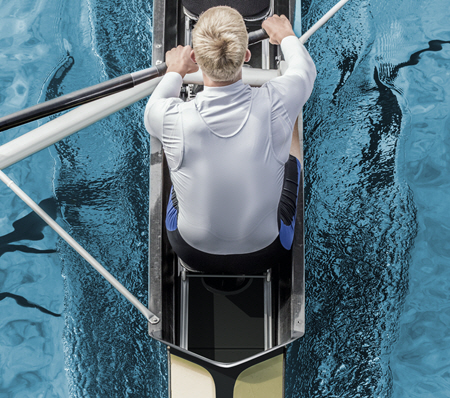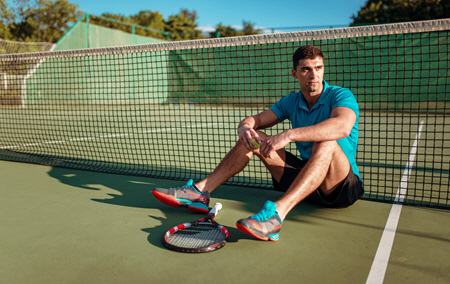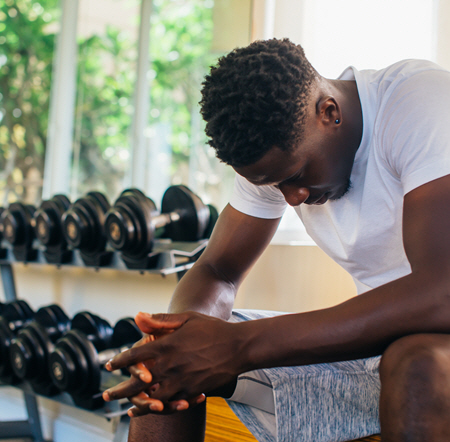 Daniel* moved to New York to be near a nationally revered rowing coach.
Daniel* moved to New York to be near a nationally revered rowing coach.
I’d cry alone in my room. I’d gone from being in school… around my friends and family all the time… to fully committing to this pretty intense sports lifestyle.
It was lonely and isolating, and I definitely wasn’t sharing that with anybody because there’s a level of toughness expected to be a “great champion.”
I thought this was how it was supposed to feel and that I just needed to push through it.
It’s a lot of pressure!
 The athlete mentality and lifestyle seldom prioritizes mental self-care.
The athlete mentality and lifestyle seldom prioritizes mental self-care.
Athletes are taught to be “tough,” so they rarely speak about their struggles… even though the road to success is often riddled with emotional turmoil. The non-stop pressure to improve and perform… the all-consuming training and competition schedules… the overarching fear of failure inside of a culture of invisibility…
It’s a complex juggling act!
And you have to do it in an environment where admitting weakness feels risky.
 Society likes to talk about the strength, dedication, and successes of athletes…
Society likes to talk about the strength, dedication, and successes of athletes…
But it speaks much less about the high incidence of depression, anxiety, substance abuse, eating disorders, risky behavior, self-sabotage, and suicide among athletes.
Athletes are good at pushing through pain, which makes them good at hiding their feelings. But emotional pain finds a way of coming out.
 You don’t have to suffer in silence.
You don’t have to suffer in silence.
It’s much easier to say, “my ankle hurts” than “my heart is broken.”
Therapy can help you find new ways of relating and coping with your emotional struggles. It can even help you change the thinking patterns behind your depression and anxiety.
Together, we’ll help you understand your thoughts and emotions so that you can recognize how they’re influencing each other. As a result, they won’t feel so overwhelming and confusing. You’ll learn to think differently and “call out” unhelpful thinking styles (e.g., “black and white” or “all or nothing” thinking). You’ll also learn new ways of relating to your emotions (they are not always a weakness!).
You’ll get the tools and coping skills you need, like breathing exercises and mindfulness practices, to manage your emotions and symptoms.
I’ll also give you visual aids to help you understand your emotions and thought patterns… and short videos to expand your perspective on vulnerability and courage.
 I fenced competitively for 15 years professionally and collegiately…
I fenced competitively for 15 years professionally and collegiately…
So, I get that when you’re competing, emotions need to be managed and compartmentalized. They’re not always helpful in the game, but emotions can be useful in our personal lives. Humans developed emotions because they help us survive. Emotions help us take action, avoid danger, make decisions, respond appropriately, and build deeper, more meaningful relationships with our friends, family, and loved ones. They also allow us to communicate effectively.
I know this stuff isn’t easy to talk about, but I can tell you from first-hand experience that therapy works for athletes. It can work for YOU!
There is no reason to suffer alone. Together, we can get you feeling better and where you want to be.
Call (845) 418-3239 or email me at [email protected], and I will get you set up with a free 15-minute consultation.
*Name changed to preserve client confidentiality.

